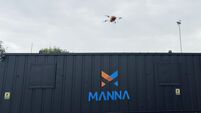Paul Duffy: Irish competitiveness depends on investment into skills

Another pressing issue is the inclusion of those currently distanced from the labour market. This includes the long-term unemployed, people with disabilities, members of the traveller community, migrants, refugees, and others who have been unable to engage in the workforce. File picture: iStock
Having spent over three decades in the biopharmaceutical industry, I've had the privilege of witnessing the remarkable transformation of this sector in Ireland and with business representative group Ibec, I have seen similar transformations replicated across many sectors, by both Irish and international firms.
This evolution of numerous companies in Ireland is a testament not only to technological advancements but also to the talent, resilience, and ambition of the Irish workforce.












